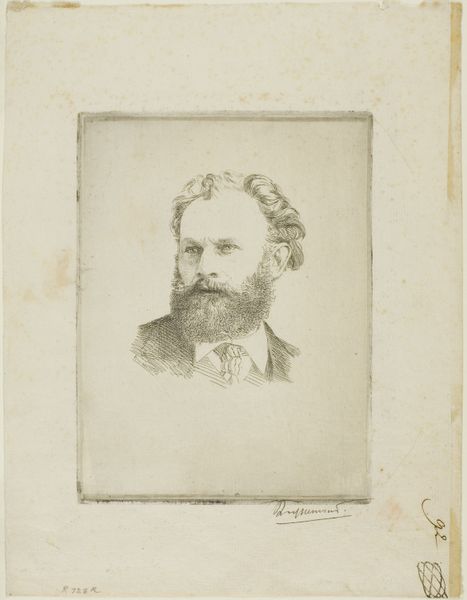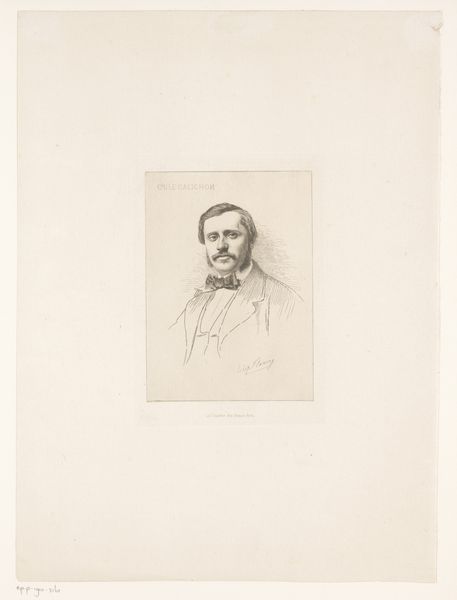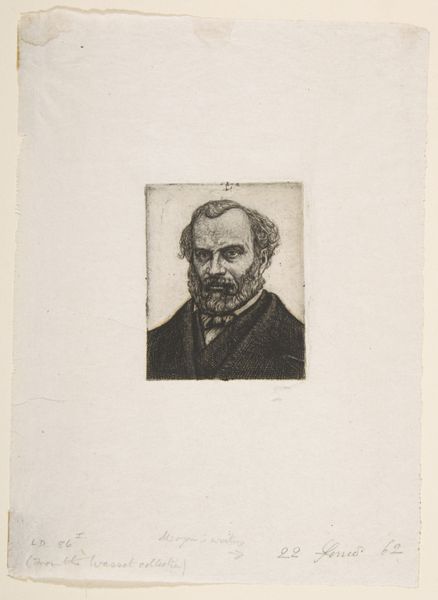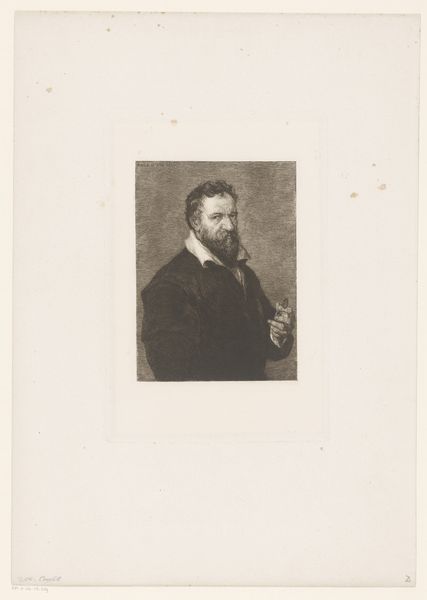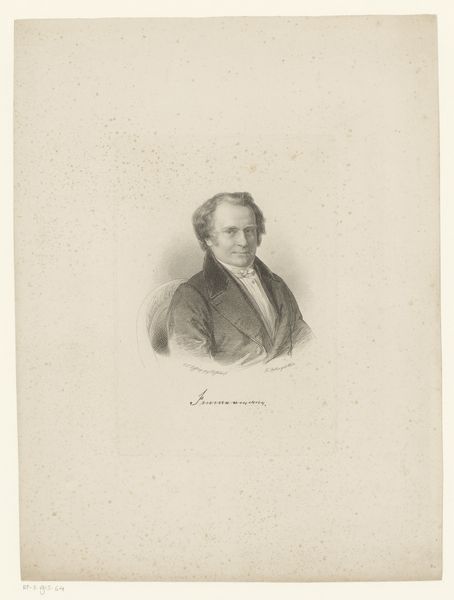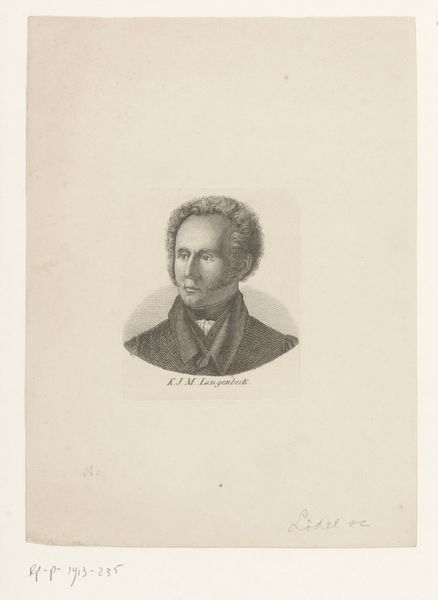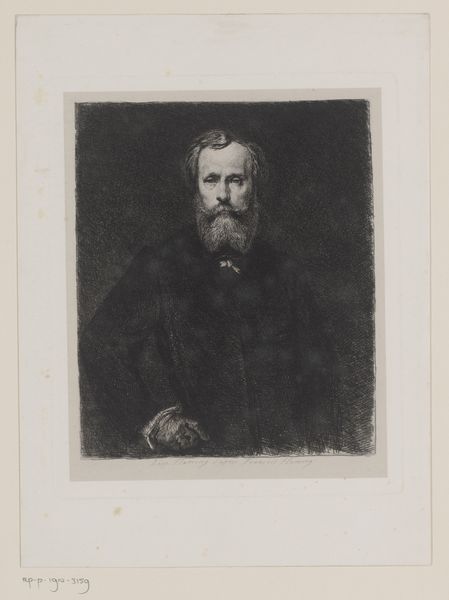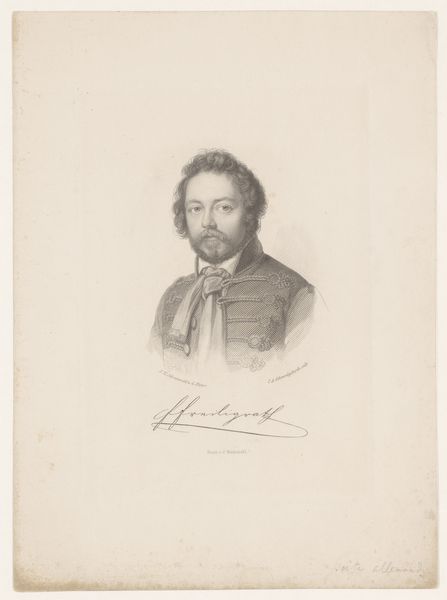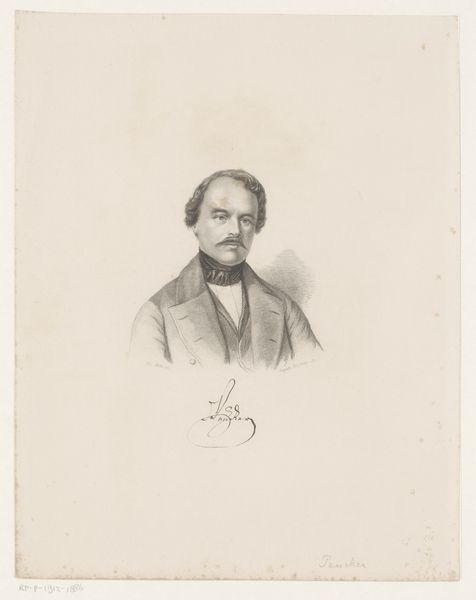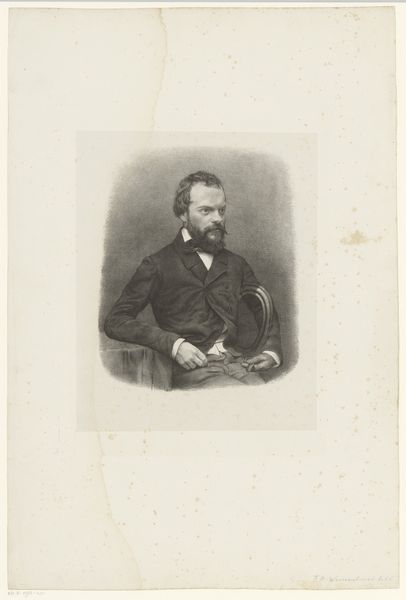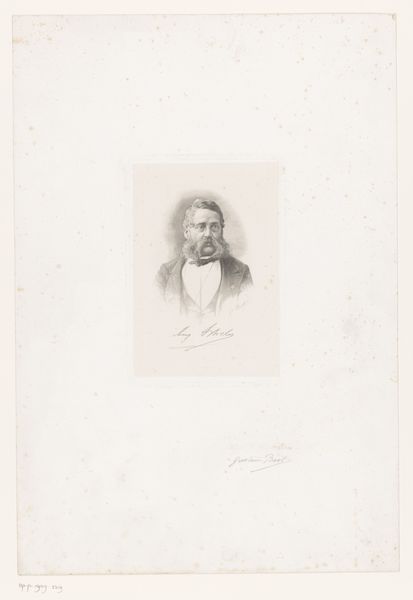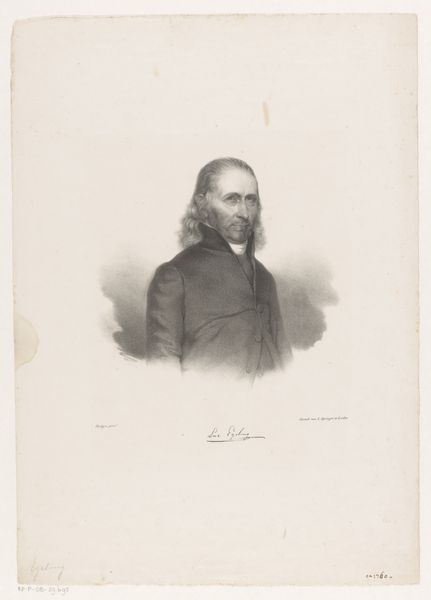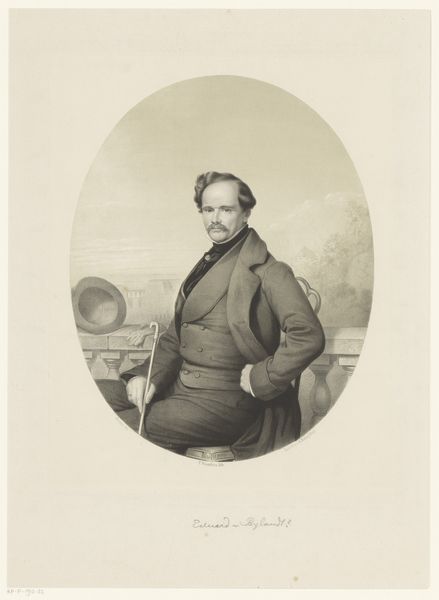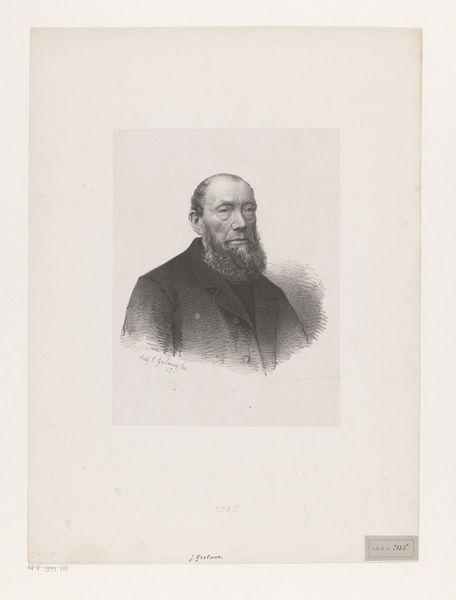
drawing, engraving
#
portrait
#
pencil drawn
#
drawing
#
light pencil work
#
pencil sketch
#
old engraving style
#
figuration
#
pencil drawing
#
romanticism
#
pencil work
#
engraving
Dimensions: height 190 mm, width 133 mm
Copyright: Rijks Museum: Open Domain
Curator: The somber intensity really grabs you right away, doesn't it? Editor: It does. We're looking at a portrait identified as "Portret van Buonaventura Genelli" by Carl Arnold Gonzenbach, dating from between 1816 and 1868. It appears to be an engraving. Curator: Yes, and that stark contrast, achieved entirely through line work, evokes a sort of… grim Romanticism. Editor: Agreed. The artist’s choice of engraving reflects a printmaking tradition reliant on skilled labor and the replication of imagery for a broader audience. This contrasts with unique art objects and ties into social access and the democratization of portraiture. Curator: The subject's intense gaze definitely projects an air of self-importance, further enhanced by the intricate details captured in his beard and hair. Look at the fine gradations achieved through varying the density of lines. Editor: Notice, too, the social and economic factors intertwined with the sitter's self-representation. His clothing, suggested only with stark linework, hints at social standing, connecting material possessions to personal identity. This era emphasized displaying oneself to communicate their societal value and belonging. Curator: And how the artist uses shadow—almost as if he’s sculpting the light on Genelli's face, accentuating that formidable brow. Editor: Yes, the emphasis on light and shadow contributes significantly to the overall aesthetic and atmospheric quality. It accentuates form while creating mood. Considering the Romantic era's inclination towards introspection and emotion, Gonzenbach's engraving effectively visualizes those principles. Curator: Indeed, the engraving almost feels like an etching in its level of detail. It makes you think about the engraver’s process. Editor: Looking at "Portret van Buonaventura Genelli", the interplay between the labor-intensive method and its visual outcome adds layers to our understanding of the portrayed individual within their historical and material context. Curator: For me, this portrait showcases how a seemingly simple composition can still powerfully capture a profound sense of character and feeling. Editor: From a materialist perspective, it offers a lens through which we can explore art, production, social class, and even the perception of the self during the Romantic era.
Comments
No comments
Be the first to comment and join the conversation on the ultimate creative platform.
